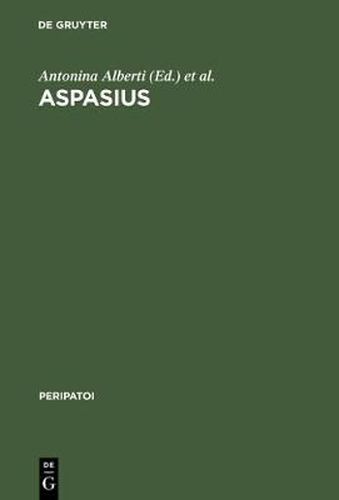Readings Newsletter
Become a Readings Member to make your shopping experience even easier.
Sign in or sign up for free!
You’re not far away from qualifying for FREE standard shipping within Australia
You’ve qualified for FREE standard shipping within Australia
The cart is loading…






This book comprises essays on the nature of Aspasius’ commentary, his interpretation of Aristotle, and his own place in the history of thought. The contributions are in English or Italian.
Aspasius’ commentary on the Nicomachean Ethics is the earliest ancient commentary on Aristotle of which extensive parts survive in their original form. It is important both for the history of commentary as a genre and for the history of philosophical thought in the first two centuries A.D.; it is also still valuable as what its author intended it to be, an aid in interpreting the Ethics. All three aspects are explored by the essays.
The book is not formally a commentary on Aspasius’ commentary; but between them the essays consider the interpretation of numerous problematic or significant passages. Full indices will enable readers quickly to locate discussion of particular parts of Aspasius’ work. This volume of essays will form a natural complement to the first ever translation of Aspasius’ commentary into any modern language, currently in preparation by Paul Mercken.
$9.00 standard shipping within Australia
FREE standard shipping within Australia for orders over $100.00
Express & International shipping calculated at checkout
This book comprises essays on the nature of Aspasius’ commentary, his interpretation of Aristotle, and his own place in the history of thought. The contributions are in English or Italian.
Aspasius’ commentary on the Nicomachean Ethics is the earliest ancient commentary on Aristotle of which extensive parts survive in their original form. It is important both for the history of commentary as a genre and for the history of philosophical thought in the first two centuries A.D.; it is also still valuable as what its author intended it to be, an aid in interpreting the Ethics. All three aspects are explored by the essays.
The book is not formally a commentary on Aspasius’ commentary; but between them the essays consider the interpretation of numerous problematic or significant passages. Full indices will enable readers quickly to locate discussion of particular parts of Aspasius’ work. This volume of essays will form a natural complement to the first ever translation of Aspasius’ commentary into any modern language, currently in preparation by Paul Mercken.